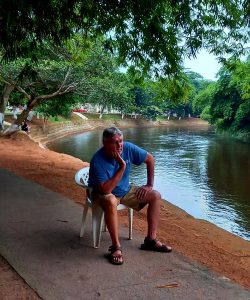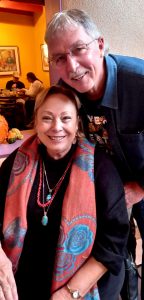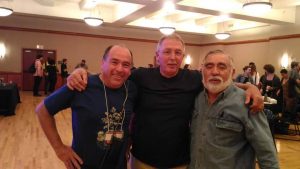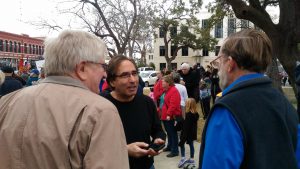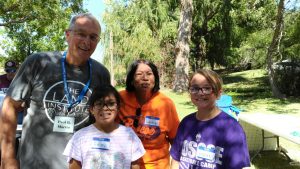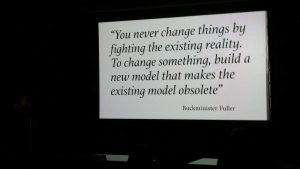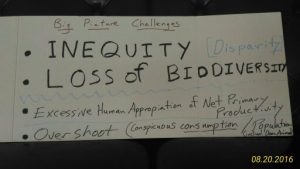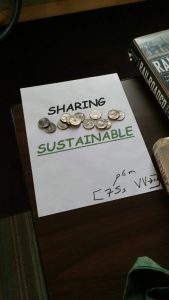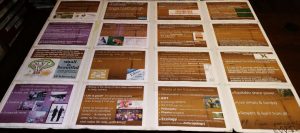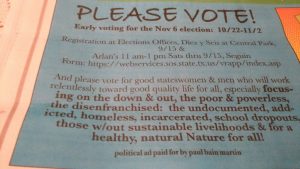I do hope we will all work hard and smartly … and contribute in every way possible toward “positively ethical applied community ecology*” across curricula & campuses of all human organizational entities.
Past letters to editors here in Seguin concerning critical thinking and decision-making with respect to school bond elections:
“605 Elm
Seguin, TX 78155
October 14, 2013
Seguin Daily News/KWED office
609 E. Court St.
Seguin, TX 78155
Subject: Critical/Creative Thinking?? and the Nov. 5th Bond Elections
To the Editor:
I say “YES!!!” to the youth and for quality of life into the future of Seguin, and …
- “NO!” to the school bond as it is proposed (I would support the construction of several small high schools–with all becoming exemplary campuses of ecology-across-the-curricula vs. reconstructing one large one with plans to make it even larger in the future.),
- “No” to the city library bond as it is proposed (I support the upgrading and maintenance of the current library facility, plus the construction of a new one (with the promotion of transport to and from the library facilities via walking/bicycle/bus).), and
- “yes” to the proposed city park bond (although I do hope we resist temptations to “over-artificialize”, and that we work hard at using low tech/appropriate technologies in the processes of constructing and maintaining our parks and that we regenerate and conserve as much natural native green space as possible).
Even though I will vote “No” on two of these proposed bonds, I would encourage you to vote “Yes” on all three, especially if you are simply worried about self and the cost of education and taxes (We, even in Seguin, Texas, are a part of a very wealthy and powerful nation which should be less concerned with maintenance and increasing of extravagant funding of defense, arms, and Homeland Security, and more with well-funded/smart education systems, protection of the natural resource base and helping others in the world who are truly poor, disenfranchised and lack power.).
I encourage you to vote “Yes” on these bonds because most all of my friends and others who are well-meaning citizens of integrity and some who are wonderful educators and/or real leaders, are certainly better informed that I about the short- and long-term needs of Seguin. They must know:
- That big 4 and 5A schools are or can be better than home-schooling, small private schools, Gates Foundation “small/challenging schools” or 2A- and 3A-sized public schools at educating more students to read, write and use math and … about how essential the natural resource base is, … about “appropriate low input-throughput application of STEM”, … and toward having basic life skills, being good citizens, and practicing positively ethical applied community ecology. They must know something that E.F. Schumacher, author of the wonderfully enlightening/scientifically-sound “Small Is Beautiful: A Study of Economics As If People Mattered”, did not know and that much research, which supports the use of small schools in order to achieve comprehensive quality education, did not reveal.
- That the status quo of continued upward mobility for the already powerful of the world is more important than significantly lowering our ecological footprints and actively and generously sharing power with the truly poor of the world. They must know something that David Orr, author of the historic essay “What Is Education For?”, and many other ecologists, philosophers, educators, and ethicists, do not or did not know.
Thanks for your (hopefully) well-informed votes on these bonds involving critical thinking for the short and long-term good of an appropriately globalized Seguin.
…………………..
April 24, 2008
Seguin Gazette Enterprise
PO Box 1200
Seguin, TX 78155
To the Editor:
I have decided to vote against Propositions 1, 3 and 4 of the Seguin ISD School Bond election. And I encourage other local citizens to do likewise.
(I will vote for Proposition 2 supporting the new elementary school. … Moreover, I participated in a very gracious, open, professional and convincing presentation by Mr. Rene Ramos, SISD Chief Operations Officer, which indicated to me that we should vote for all 4 propositions–i.e., if we are going to continue to be a very high-input community with a very extractive and overall, non-sustaining economy. … Hence the rationale for my votes for and against may be quite different from that of other folk who have studied and reflected upon these 4 school bond propositions. Nevertheless, I’d like for you to read, reflect upon and consider what I’ve detailed in the following paragraphs, as you prepare to vote.)
………………………………
In his classic paper, What Is Education For, David Orr of Oberlin College emphasizes that “no student should graduate from … any … educational institution without a basic comprehension of:” ecological principles, processes and ethics, carrying capacity, least-cost/end-use analysis, appropriate scale and limits of technology, and how to live well in a place.
With this in mind, our lifestyles are indicative of the fact that we haven’t done very well at educating toward ecological literacy in the U.S., nor in Seguin. Our biocapacity in this country is about 11.6 acres per capita, yet our ecological footprint is 23.7 ( http://assets.panda.org/downloads/living_planet_report.pdf ). (And this precarious difference is worse for south central Texas.) (Numerous other indicators of sustainability also point to the fact that we are not realizing ecological literacy.)
Moreover, we consume per capita considerably more than 200,000 kilocalories per day, yet over one billion powerless folk consume less than 5,000 per day
( www.webpages.uidaho.edu/~rfrey/220original.html & others.). Our consumption pattern here in Seguin cannot yield quality life for most of the billions of folk in the world—for now and certainly not for future generations.
School planners, educators and school systems are obvious pools to tap for leadership that will move us toward a mindset and toward a Natural and agricultural green space which will facilitate and enable livelihoods of conservation and sustainability. In order to foment these pools of conservation and sustainability, we need more neighborhood and rural schools (including high schools) built in concert with Nature and the Land which have no more than 500 students
( www.wested.org/online_pubs/po-01-03.pdf ). The landscapes of our schools should be of mostly native plant communities (possessing placards with species identification/information), some agricultural production, living and rainfall-catchment roofs, and limited parking space (encouraging walking, bicycling, bus transport and car-pooling). Buildings should be sustainably built of mostly local materials and should be designed and strategically placed for passive cooling and heating, and for comprehensive, holistic education that is lived and breathed on the campus. Food and drink—and fibers and other materials used on campuses– should be mostly locally produced, processed, and prepared for consumption.
All folk involved in school systems—students, staff, faculty, administrators, school board members, the larger community—should be knowledgeable about the energy and material inputs/throughputs and outputs, and ecological footprints of the school and school system, and involved in changing them for the better (effective communication, participatory/hands-on, decentralized/site-based management, lifelong learning/critical thinking). Various “renewable” energy sources, holistic and preventative systems of student health care, composting toilets and simulated-wetlands sewage-treatment systems and LEED certification at the highest level also need to be considered. (And of course we should have additional systemic and holistic “greening of the curriculum.” http://livegreenlivesmart.org/library/articles/campus_greening_movement.aspx )
The picture I’ve painted in these previous two paragraphs is part of a dream, … a vision for moving toward a conserving and sustainable Seguin. It most certainly won’t happen over night! … But it will never happen in an effective and efficient manner if we don’t start now!!
No one likes to hear that the schools and other components of our built environment–on which we’ve worked so hard, and sacrificed and struggled to build in an ethical fashion–should have been smaller and developed in concert with Nature and the Land. Established people in a local region don’t want to hear a relative newcomer (our arrival here was 1985) spout off that the high tech, high-energy and -resource input ways of doing things—that we were particularly manipulated toward, taught and lived after WW II–were way off base. And we don’t want to hear and know that we can’t just tear down what we’ve built, and cannot just throw energy and resources and the “American”/can-do attitude at it, … and then magically fix it.
We Texans and Seguinites are a proud people, set in our ways. And all of us, young and old, in the US, Western Europe, Japan and other “developed” nations, and among the elite in the less-developed nations, have really become addicted to “big” and “consumption” and “wasteful lifestyles”–conventional air-conditioning and water heating, cars, SUVs, and pickup trucks, eating exotic product from all over the world which costs much in energy-units, etc., etc..
Nevertheless, we need to reach down deep and get some humility, all of us—the “wet behind the ears” and the “wise and experienced”—and begin to critically think about how to begin to lead our community into conservation and sustainability. We’ve got to learn to live lightly on the Land and compassionately attempt to provide quality life for all–everywhere and forever.
Therefore, let’s be brave, ethical and critically-thinking as community, and cautiously begin to accept the monumental challenge to develop a long term plan that involves a revamping of local Seguin school district toward holistic ecological literacy.
Vote “No!” on Propositions 1, 3, and 4!
And whether they pass or not, let’s begin to work hard to build small neighborhood schools in concert with Nature and the Land, that teach and promote ecological literacy and that give us hope for providing quality life for all for years to come.
(This wasn’t an easy letter to write. I sort of would like to just be a part of status quo–and doing a little gardening and picking dewberries, and looking at the beautiful new calf crop, and recycling, and bicycling to the Wellness Center regularly, and helping my wife, Mom and Mom-in-Law, and kids and grandkids—and not worry and struggle with real issues and real change toward conservation and sustainability.
But … .)
Sincerely,
paul b. martin, ph.d.
stockman, gardener, biologist, teacher”
****************************************************************************
*PEACEmaking (socio-ecological justice)
Note: This “Please Vote” ad below was from a previous election.
But … PLEASE VOTE!
